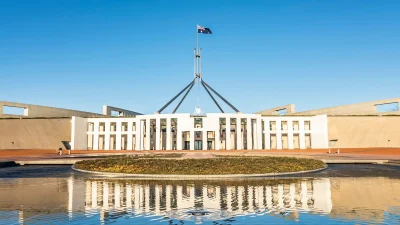Bringing superannuation changes into focus


With debate surrounding the super profits tax having sidelined analysis, Stephen Kunz examines the proposed changes made to superannuation in the Federal Budget.
What do the Budget Superannuation changes really mean?
The media war over the Resource Super Profits Tax (RSPT) has obscured analysis of the proposed superannuation changes announced following the release of the Government’s response to the Henry Review in May this year.
The first proposal, an increase in the Superannuation Guarantee (SG) from 9 per cent to 12 per cent, appears to offer something for everyone.
The second, a rebate on contributions tax for those on incomes up to $37,000, is aimed squarely at addressing the lack of tax concessions on superannuation contributions for low income members and the third, the extension of the $50,000 concessional contributions limit for those 50 or over with superannuation balances under $500,000, is aimed at those with low to moderate balances approaching retirement.
The increase in superannuation guarantee
The increase in the SG is the Government’s major announcement. Notably, it was not the preferred option for increasing superannuation savings in the Henry Report. The panel favoured a system where contributions would be tax-free in the fund but taxable, with concessions, at the individual level.
If your clients are already salary sacrificing, this change may not mean much.
If your clients are already contributing to their concessional limits, it will have no effect other than gradually reducing their salary sacrifice contributions to keep within the concessional contribution limit, keeping in mind that with indexation this will rise over time.
The effect on wages as employer’s total employee costs rise, albeit very gradually, will depend on the wage market at the time. We note that in so much as the increase in the SG is a substitute for wage increases, it reduces the Government’s tax revenues.
Paradoxically, older employees will proportionally have the greatest increase in SG contributions, with the SG being extended from 70 to 75 years of age from 1 July, 2013. However, this will have only a minor effect on balances, as it will represent only five years of SG contributions.
Overall, the effect the increased SG will have on superannuation balances will be greatest for younger accumulators with longer working lives.
Graph 1 compares the current 9 per cent SG contribution rate to the announced 12 per cent contribution rate phased in by 2019-20 for employees who are aged 25, 35 and 45 in 2009-10 with incomes of $40,000, $60,000 and $80,000 respectively.
We have assumed that each employee has an uninterrupted working life, retires at age 65 and their funds earn 6.8 per cent, net of tax and fees.
By assuming no opening balance or salary increases, this analysis looks purely at the effect of increasing the SG.
The proposed increase in the SG rate raises the accumulated balance at age 65 of the 25-year-old member by 21.6 per cent, the 35-year-old's balance by 20.7 per cent and the 45-year-old's balance by 18.5 per cent.
These increases are substantial and would result in less reliance on the age pension, particularly after 2030, when those currently in their mid 40s reach retirement age.
Interestingly, if we factor in real wages growth of 2.5 per cent per annum, the benefit over the current contribution rate increases to 24.4 per cent, 23.1 per cent and 20.4 per cent for the 25, 35 and 45-year-olds respectively.
On these calculations, the proposal may be of real benefit in reducing reliance on the age pension. The magnified benefit produced by wages growth emphasises the benefit to the government’s budgetary position, via a lessened reliance on the age pension, if Australia continues to have strong productivity and economic growth.
The $500 rebate
The rebate of up to $500 on contributions tax for members earning less than $37,000 from 1 July, 2012, offsets the tax on the 9 per cent SG contribution on incomes up to this amount.
It’s unclear if the rebate will apply only to SG or all concessional contributions, and it’s uncertain if the rebate will increase along with the announced increase in the SG contribution rate.
Graph 2 shows the effect on a member’s balance over 10 years assuming the member has an opening super balance of $30,000, they earn an income of $37,000 on which they receive the 9 per cent SG and their fund earns 6.8 per cent net of fees and tax.
In the example the rebate increases the balance from just over $99,300 to $106,600 by year 10.
While the move to reduce tax on concessional superannuation contributions for those on the 15 per cent marginal tax rate is welcome, it will have only a marginal effect on superannuation balances.
Extension of the $50,000 contribution limit
The transitional concessional contribution limit of $50,000 for those 50 or over will end on 30 June, 2012. The proposal that it be extended indefinitely from 1 July, 2012, but only to super fund members with balances of less than $500,000, has caused much speculation.
For instance, we do not know if the $500,000 balance will include amounts in pension phase, although unless it does there is an obvious strategy to circumvent the limit. Nor do we know if contributions split with spouses to keep balances below $500,000 will be assessed in the threshold.
The Government has said that it will consult with the industry on the implementation details of the measure.
If the member can salary sacrifice more than $25,000 and has a small superannuation balance, the benefit of the proposed change is clear: up to $50,000 can be salary sacrificed and their superannuation benefit will increase to a greater amount than under the existing post 30 June, 2012, concessional limit of $25,000.
However, not everyone can afford to reduce their after-tax income. A popular strategy to maintain after-tax income and increase superannuation savings has been to combine a transition to retirement pension and a salary sacrifice arrangement.
Does the extension of the $50,000 concessional limit increase the benefits of this strategy?
Graph 3 looks at the effect of the proposed change on a member aged 55 in 2010/11 with pre-tax income of $80,000 who wishes to maintain his after-tax income of $61,250.
He has a moderate opening balance of $250,000, all taxable component, and his fund earns 6.5 per cent.
The graph shows the total balance in his superannuation accounts (pension and accumulation) up to age 65 under three assumptions:
- relying solely on SG contributions
- combining salary sacrifice with transition to retirement under the existing limit ($50,000 until 30 June, 2012, and the $25,000 per annum) and
- the new proposed limit of $50,000 up to a balance of $500,000.
In all three scenarios his after-tax income remains at $61,250 and he receives the proposed increased SG contributions.
Our analysis shows that the implementation of the transition to retirement strategy (TTR) combined with salary sacrifice limited at $25,000, rather than relying on SG contributions, increases the balance at retirement from $515,000 to $568,000 at age 65.
The extension of the $50,000 cap leads to a higher balance than the TTR and salary sacrifice strategy under the existing limits.
In our example, the member contributes more than $25,000 in seven of the years after 1 July, 2012, and is only restricted by the $500,000 limit in the last year. Their balance at retirement is nearly $587,000 — an increase of $21,000 over the TTR and salary sacrifice strategy under the existing limits.
What is the effect of the proposed change on members with higher starting balances who wish to maintain their after-tax income?
For these members the proposed change has almost no benefit because even though they have the ability to draw a higher maximum TTR pension and fund contributions in excess of $25,000, they will quickly exceed the $500,000 threshold and have to revert to contributing $25,000.
Many in this category will, in any case, exceed the $500,000 threshold before 30 June, 2012.
Similarly, the proposed change has little benefit for those members with low balances who wish to maintain their after-tax income. Members in this situation are unable to contribute over $25,000, even when drawing a maximum TTR pension, and maintain their income.
Conclusion
The changes proposed following the release of the Henry Report and in the 2010 Federal Budget provide some benefit to those saving for retirement.
The increase in the SG provides significant benefits for those who cannot make extra concessional contributions above the current SG.
The benefits to low-income workers from the $500 rebate are limited, as they only apply to small concessional contributions.
The extension of the $50,000 concessional limit for those 50 or over has benefits for those with low balances who can afford to utilise the limit by reducing their after-tax income.
However, it has limited benefit for those who wish to maintain their after-tax income by combining salary sacrifice arrangements and a transition to retirement strategy.
Stephen Kunz is a technical services consultant at Suncorp Life.
Recommended for you
Licensees are figuring out how to navigate the annual superannuation performance test to avoid any clients being stuck in affected funds and whether they need to start running their own internal tests.
Tighter legislation is being urged around anti-hawking laws to prevent ‘dodgy advisers’ from scamming consumers to switch superannuation funds.
The Federal Court has found Active Super made misleading representations regarding its ESG credentials, specifically around excluding Russian investments at the time of the Ukraine invasion.
Treasurer Jim Chalmers has handed down his third budget, outlining the government’s macroeconomic forecasts and changes to superannuation.














